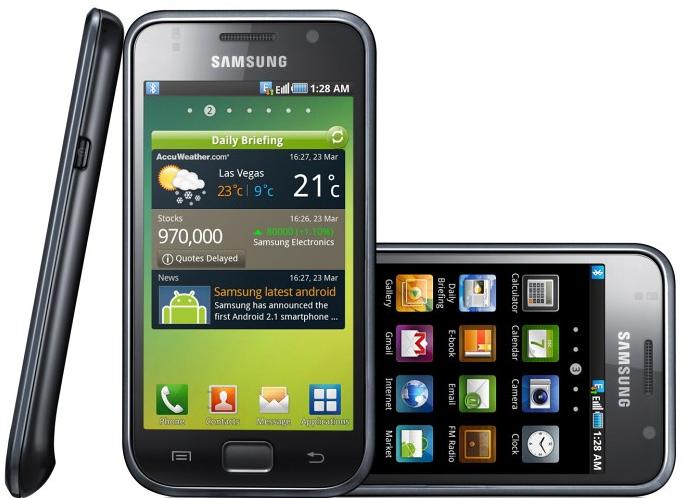 | ||
① Mobile Campus
At long last, the University signed the ‘POSTECH Mobile Campus Agreement’ with SK Telecom on Sep. 6. From now, the two institutes will build a cooperative system to construct the Mobile Campus, which applies mobility to campus education, administration, and living welfare. The agreement is composed of three details: the supply of smart phones to campus members, the production of a mobile groupware such as POVIS for users, and the installation of wi-fi zone across the campus. Supplying smart phones has already started, and is planned to be finished by the end of October. With the spread of smart phones, preparation for the Mobile Campus will be finished by next semester.
As POSTECH always looks years ahead, the construction of the Mobile Campus, preceded by former ubiquitous campus plans including ID card systems, unmanned guides and storage, and LED notice displays, will serve for the development of a ubiquitous environment across the campus. Nowadays, many Korean companies, institutes, and schools have already finished or have been carrying out the construction of the Mobile Campus to build ubiquitous environments. In addition, the activation of smart phone culture, such as social networking service and applications. will help Postechians be leaders of an information-oriented society. Already, the POSTECH Application Developer (PoApper) has joined among them.
② PoApper
PoApper, POSTECH Application Developer, may be a successful example of being a leader in the information-oriented society. Started under the Office of Academic Information Affairs, it makes smart phone applications demanded by the school and students. Mainly composed of students from the department of Computer Science and Engineering, PoApper has mentored newcomers during the vacation as well as produced applications.
There are several applications they already manufactured, including PosB for iPhones and Pohang Bus Navigation. Actually, PoApper made them for iPhones, which led the advent of smart phones in Korea. From now on, with the propagation of the Android-oriented Galaxy S for the Mobile Campus, PoApper will make applications for Android users, granting a special favor to more school members. Their works are honoring themselves and POSTECH, as well as their futures.
Mr. Choi Jung-bin (CSE, junior), the chairman of PoApper, introduced their future plan: “We are planning a project to make applications for course registration and submission of assignments. To make better interfaces, we are looking for a web designer.”
③ SNS
Twitter, simply referred to as ‘microblogging’, and Facebook are two representative examples of Social Network Services (SNS). People can communicate with anyone in the world through Facebook, and they can also exchange real-time messages through Twitter. From the Mobile Campus, which can help campus members to access the Internet without any limit of time and place, Postechians can extend interaction with other people via SNS.
④ Korea’s Mobile Revolution
The Smart Phone Wave is striking the whole world and leading us to a new revolution. In Korea, the rapid spread of smart phones and reorganized structures of institutes and communities using them create new concepts, such as the Mobile Office, the Smart Hospital, and the Mobile Campus.
The Mobile Office targets an improvement of work efficiency. It invites members to more frequently communicate with each other by easy accessibility. Administration, such as approval from superiors, can be finished quickly. SK Group expects 30% improvement of work efficiency from designing the Mobile Office. It will complete the construction of the ‘T Office’, the Mobile Office of overall group companies. Already more than 500 institutes have made agreements with SK Telecom to build characterized Mobile Offices, and competitors KT and LG U+ have accelerated Mobile Office businesses.
Another example, the Smart Hospital, is characterized by real-time care for customers. Using smart phones, doctors can check the status of patients not only in hospitals but in their homes. Inversely, patients can get real-time diagnoses. Major medical institutes including the Samsung Medical Center and the Catholic Medical Center are at the head of the new wave.
The Mobile Campus is another blue ocean of reorganized structures. Starting with the Ulsan National Institute of Science and Technology, many universities are in the process of designing a Mobile Campus. However, support from most major universities still ends up in supporting application production. That’s why the MOU of POSTECH and SK Telecom is so meaningful in that the university and the mobile operator are implementing the Mobile Campus aggressively.


